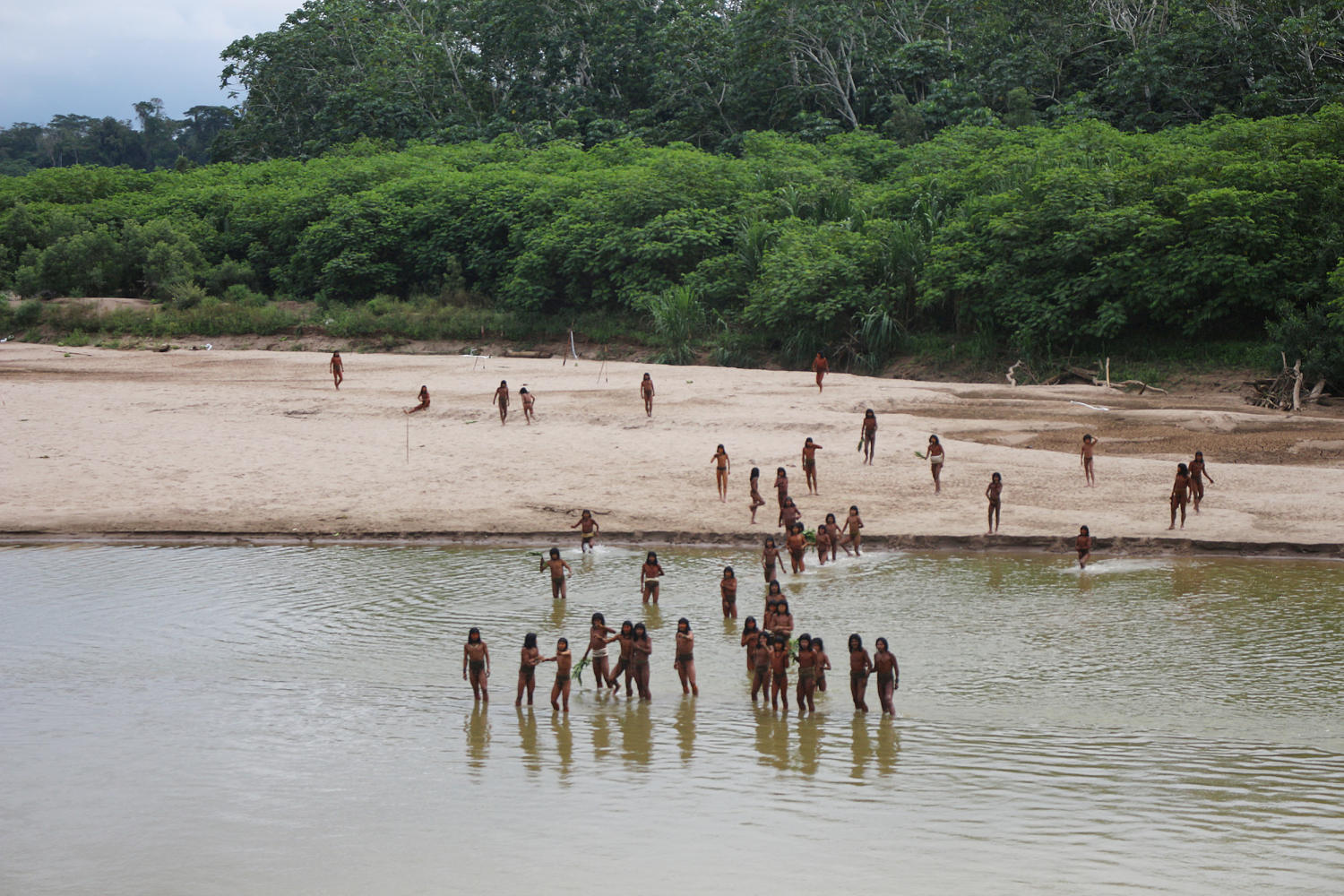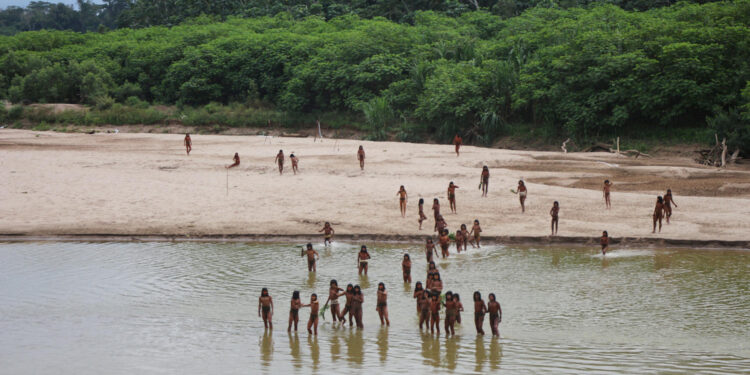
More than 50 members of an uncontacted indigenous tribe have been photographed on a river bank in the remote Peruvian Amazon near to an area where logging companies have been granted concessions by the country’s government.
The large group from the Mashco Piro appeared in recent days near the southeastern village of Monte Salvado, which belongs to the Yine people. A smaller group of 17 appeared near a neighboring village.
The Yine, who speak a language related to that of the Mashco Piro, have previously reported that the uncontacted tribe has been angry about the presence of loggers on their land, according to indigenous rights group Survival International.
“This is irrefutable evidence that many Mashco Piro live in this area, which the government has not only failed to protect, but actually sold off to logging companies,” said Alfredo Vargas Pio, president of local Indigenous rights group FENAMAD in a statement from Survival International.
NBC News has contacted the Peruvian government for comment.
FENAMAD also said that the secluded tribe has been sighted leaving the rainforest more often in recent weeks in order to look for food and to avoid loggers, according to Reuters.
This isn’t the first time the Mashco Piro are suspected to have been angered by logging. Just over a decade ago, the tribe attempted to make contact with the outside world on more than one occasion.
In 2013, some of its members engaged in a tense standoff with a remote riverside community. Authorities suggested at the time that they may have been upset by illegal logging in their territory.
This time around, FENAMAD’s Vargas Pio said that “there’s also a risk of violence on either side.”
More than 750 people strong, they are believed to be the world’s largest uncontacted tribe, having survived massacres and enslavement during the rubber boom of the 19th century.
One logging company, Maderera Canales Tahuamanu SAC, has built more than 120 miles of roads for its logging trucks to extract timber, Survival International says.
The company is certified by the Forest Stewardship Council, a non-profit that certifies responsibly managed forests. The council’s database shows that Canales Tahuamanu holds over 130,000 acres of certified forest.
Peru’s government also acknowledged eight years ago that Canales Tahuamanu was logging within Mashco Piro territory.
“The FSC must cancel its certification of Canales Tahuamanu immediately — failure to do so will make a mockery of the entire certification system,” said Survival International director Caroline Pearce.
“This is a humanitarian disaster in the making — it’s absolutely vital that the loggers are thrown out, and the Mashco Piro’s territory is properly protected,” she added.
Neither the Forest Stewardship Council nor Canales Tahuamanu were immediately available for comment when contacted by NBC News.







